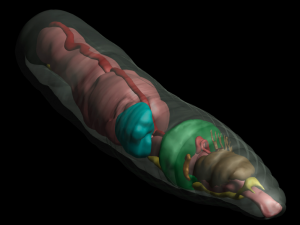
New research and data published in GigaScience and PLOS ONE provides complete open access to detailed 3D images of earthworms To quote the American cartoonist Gary Larson: all things play a role in nature, even the lowly worm—but perhaps never in such a visually stunning way as that presented in two papers published last week in GigaScience and PLOS ONE . The work and data presented here






